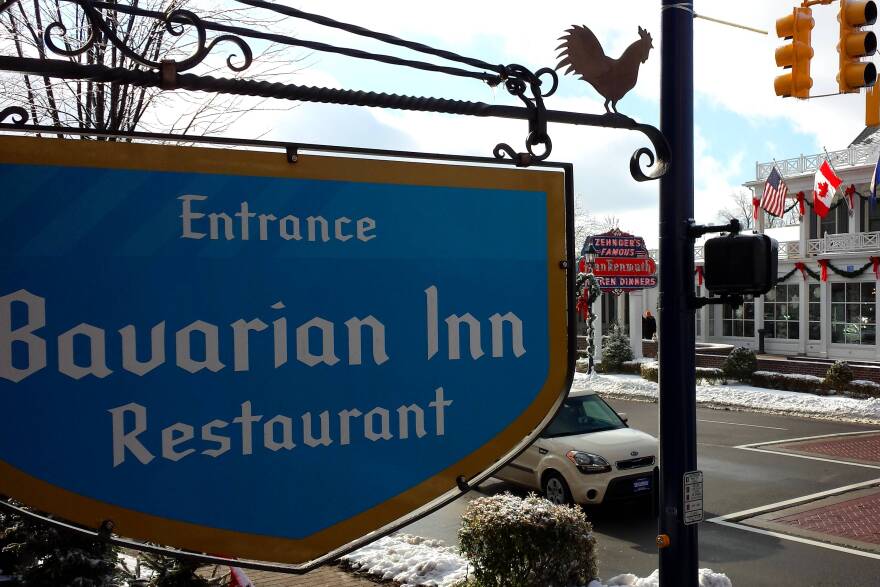Michigan could deregulate the electricity market, allowing people to choose where they buy electricity.
In downtown Frankenmuth there are two very popular restaurants: the Frankenmuth Bavarian Inn and right across the street, Zehnder’s of Frankenmuth. Both are famous for their chicken dinners. And the owners are cousins -- both of them are Zehnders.
There is an important difference. One business buys its electricity from the free market, which could include out-of-state power companies. The other pays whatever its Michigan utility company charges.
Michigan has a hybrid system where the legislature decided 10% of all the electricity used in the state could be purchased from the free market. It’s first-come, first-served until the cap is hit. Everybody else must buy power from utility companies in Michigan.

Bill Zehnder owns the Bavarian Inn. He remembers back in 2009 when the Bavarian Inn decided to sign up and then missed out.
“We found out that the cap had been reached. Well, my cousins across the street at Zehnder’s were a little bit more aggressive on that time and they got into it,” he said.
So, for the past few years, Bill Zehnder at the Bavarian Inn has been paying more for electricity than his cousin, Al Zehnder, does at Zehnder's of Frankenmuth.
“So, here you have a pretty unique situation where we’ve got two businesses very similar to each other, right across the street from each other. And basically, in my mind, the legislators are picking winners and losers and I don’t think that’s the role of our elected officials by any means,” Bill Zehnder said.
Bill Zehnder with the Bavarian Inn is now part of a coalition of businesses, consumers, and trade associations called Energy Choice Now. It wants to lift that 10% cap and deregulate the electricity market.
The Michigan power companies and the Michigan Chamber of Commerce, among others, say deregulation will cause reliability issues and make prices more volatile.
Steven Transeth is with Michigan Jobs and Energy Coalition.
He says, yeah, during the last few years those who got in under the 10% cap have saved some money, but you have to look at the long-term effects.
“We need to look at the 20-year history of deregulation and that has shown a disaster in terms of what is done for customer service, and for rates, and even for market manipulation over that period,” Transeth said.
For example, in some states electricity rates in unregulated free-market areas have cost consumers a lot more over time. In Texas, the cost is estimated to be $22 billion more in a decade compared to regulated areas in that state.
Transeth says the power companies, such as Consumers and DTE, and municipal utilities need to know the market for their electricity will be stable to be able to plan for building new power plants.
“If we do not make the kind of investments into our infrastructure and make sure that we have the kind of generation that’s going to replace all these coal facilities that are going to be coming offline here in the next few years, we’re going to be looking at some serious reliability problems,” Transeth said.
Transeth states that cannot be done when the utilities simply become the distribution service for some other out-of-state power generating company.
Besides businesses wanting cheaper electricity, others are concerned about buying green power. Some people are willing to pay a premium if they can buy 100% of their power from renewable sources such as wind and solar from a supplier outside the state.

With deregulation, they could buy power from wind farms in Iowa or Minnesota or somewhere else. There’s little renewable power generated in Michigan and the utilities fight attempts to raise Michigan’s renewable power mandate beyond where it is right now.
There’s a good chance we’ll hear this debated a lot more in Lansing. Legislation to deregulate the electric market was introduced by Republican Rep. Mike Shirkey and could be considered this year.



